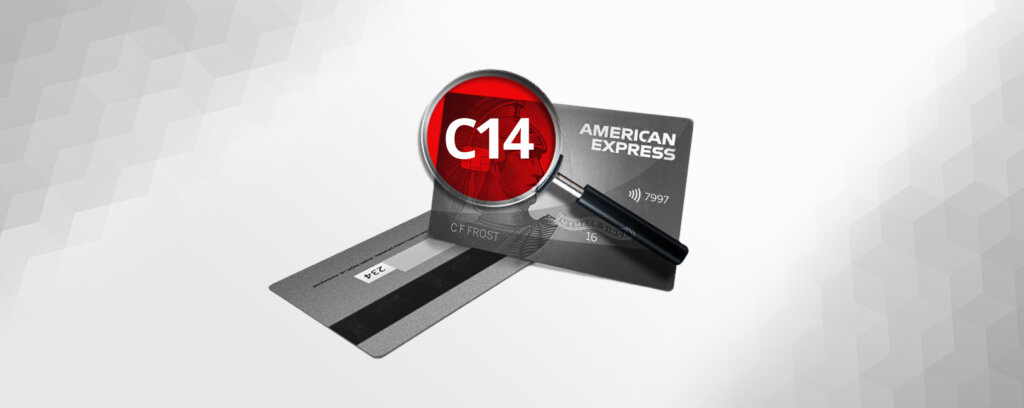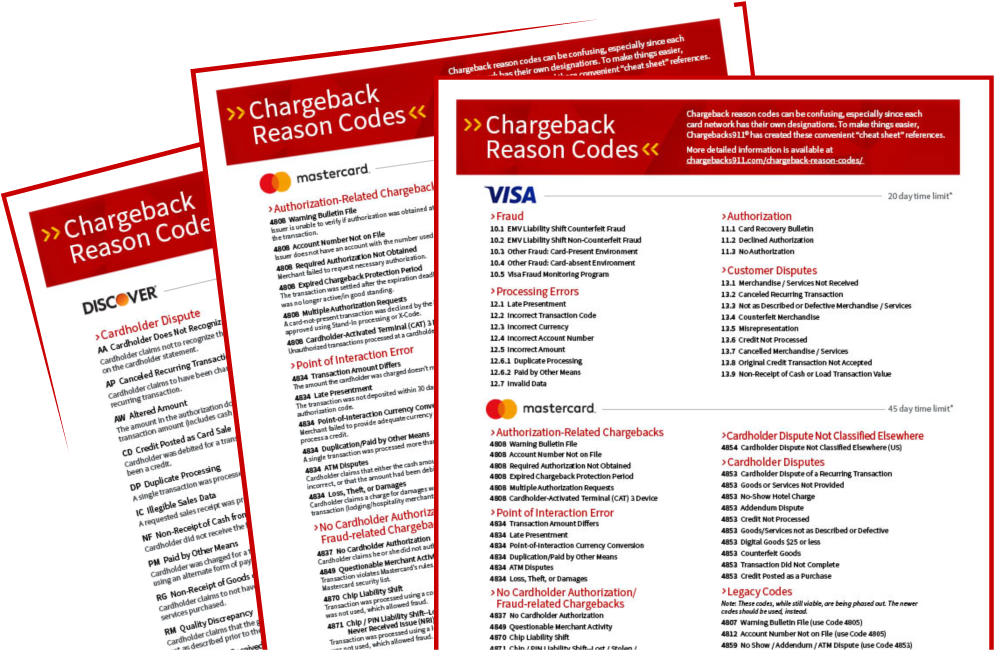
How to Handle Amex Reason Code C14 Chargebacks
American Express breaks down the acceptable causes for a customer to dispute a credit card transaction in their dispute guidelines. This is done for the sake of simplicity and standardization.
Each chargeback trigger has a designated “reason code.” Amex can then assign the appropriate code to each case to show the given reason for the chargeback.
Learn more about Amex reason codes
Today, we’re looking at one reason code in particular — C14 — and exploring the causes, timeframes, fees, and other specifics. We’ll also explore what you can do to prevent these chargebacks from happening.
Recommended reading
- Chargeback Stats: All the Key Dispute Data Points for 2025
- Credit Card Disputes | Step-by-Step Process Guide for 2025
- Mastercard Chargeback Time Limits: The 2025 Guide
- Chargebacks911® Gets in the Game for the Special Olympics!
- Chargebacks911® Food Drive in Support of The Kind Mouse!
- Can You Dispute A Dispute? Yes — Here’s What to Do
What is American Express Reason Code C14?
American Express chargeback reason code C14 is “Paid by Other Means.” This reason code is used to explain that you charged a cardholder’s card without a valid reason to do so.
For example, let’s say an Amex cardholder paid for a transaction using a payment method other than their Amex card. However, you charged the Amex card in question anyway.
This can happen because of confusion or miscommunication. For example, a buyer might have a card on file, but want to pay for a specific transaction using a gift card. The cardholder then pays using the gift card, but you accidentally charged the card on file as well.
What Caused This Dispute?
Amex Chargeback Reason Code C14 is primarily issued when a cardholder is double-charged across multiple payment methods. To demonstrate, this scenario can arise if:

How to Respond to Amex Reason Code C14 Chargebacks
So, what happens if you can prove that the transaction in question was not paid by other means?
First of all, don’t panic. You can fight back through a process called representment. This allows you to challenge the chargeback by showing evidence to American Express that your transaction was legitimate and met all of their policy requirements. The key here is to provide compelling, clear evidence in your dispute response.
However, it's important to note that time is of the essence. You have just 20 days to submit your response to American Express. Keep in mind that this period includes the time your acquirer takes to notify you of the dispute, as well as their time spent reviewing and submitting your case. In most instances, you may find yourself having fewer than five days to prepare and submit your response.
If you're faced with an invalid Amex reason code C14 chargeback, you should be swift, be thorough, and stand your ground. With a well-prepared representment, you can effectively challenge and resolve chargebacks.
Acceptable Evidence for Amex Reason Code C14 Responses
You can re-represent these charges under the condition that you have compelling evidence.
For American Express reason code C14 chargebacks, you’ll need to provide documentation showing that the payment method which the cardholder claims is associated with the charge being disputed was not actually related. Alternately, you could provide proof that the cardholder provided consent to use the card in question specifically for the disputed charge, or proof that a credit was already issued to offset the charge. Examples include:
- A signed sales draft or receipt for the charge in question.
- Record of a credit provided to the customer for the amount disputed.
- Proof that the cardholder verified and agreed to the terms of the purchase.
- Shipping information showing that the charge in question was for a different transaction.
The success of representment depends on the thoroughness and relevance of the evidence provided. Maintaining detailed records of transactions and communications with customers is vital to effectively counteract all chargebacks, including those under reason code C14.
How to Prevent Amex Reason Code C14 Chargebacks
As the old adage goes, “an ounce of prevention is worth a pound of cure.”
You may never be able to stop chargebacks entirely. But, you can limit your exposure to risk and keep your chargeback ratio in good standing by adopting a few best practices. Generally speaking, you’ll want to:
Validate All Payments
Check all payments before they’re submitted for processing. Ensure that the correct payment method is being processed or billed.Maintain Accurate Transaction Records
Keep detailed and organized records of all transactions, including receipts, customer communications, and proof of delivery. These documents are crucial for disputing chargebacks, demonstrating the legitimacy of the transaction, and showing customer consent.Process Credits Quickly
When a cardholder is entitled to a credit, make sure you provide the funds quickly. Acting fast will head off potential claims that you failed to reimburse the cardholder.Take a Wider View
You can dispute invalid chargebacks from Amex reason code C14. However, it’s much more efficient to take a proactive stance. The same is true of the other chargeback reason codes, as well. A truly effective chargeback management strategy must encompass prevention as well as disputing cases of friendly fraud.
Chargebacks911® can help your business manage all aspects of chargeback reason codes, with proprietary technologies and experience-based expertise. Contact us today for a free ROI analysis to learn how much more you could save.
FAQs
Does Amex investigate chargebacks?
Yes. American Express investigates chargebacks by reviewing the evidence provided by both the merchant and the cardholder to determine the legitimacy of the transaction and decide on the chargeback claim. This process ensures a fair resolution based on the documentation and arguments presented by both parties.
What is the reason code for a chargeback on American Express card?
An American Express chargeback reason code is a code that identifies the specific reason a cardholder or issuing bank has disputed a transaction, guiding the merchant on the nature of the dispute and what evidence may be required to contest it. Each code corresponds to a particular issue, such as unauthorized use, processing errors, or non-receipt of goods or services. Click here to see a full list of Amex reason codes.
Do police investigate chargebacks?
Police typically do not investigate chargebacks as they are considered a dispute between the merchant and the cardholder, handled through the card issuer's internal processes. However, if fraud is suspected as the cause of a chargeback, law enforcement may be involved in investigating the fraudulent activities.
How successful are Amex disputes?
The success of an American Express dispute depends on the merchant's ability to provide compelling evidence that the transaction was valid and in accordance with Amex policies. Success rates vary widely based on the nature of the dispute and the quality of the documentation provided by the merchant.
How does American Express investigate disputes?
American Express investigates disputes by reviewing documentation and evidence provided by both the cardholder and the merchant, such as transaction receipts, proof of delivery, or communication records, to determine the validity of the chargeback claim. This process aims to ensure a fair resolution based on the facts presented by both parties.









